
Chai and Bandhu brew a perfect blend for Chakla
Suspicious of his motives, his tea shop and Muslim identity, the people of Chakla village shunned Abdul Nazar until they realised his chai shop was a springboard to develop their village.

Suspicious of his motives, his tea shop and Muslim identity, the people of Chakla village shunned Abdul Nazar until they realised his chai shop was a springboard to develop their village.
Tea is India’s most popular all-season drink. But one social worker took tea to a different level.
Abdul Nazar, the social worker, brews tea in his shop in Chakla village of West Bengal – not to make money but to make friends.
His tea shop is appropriately named Bandhu – meaning friend in Bengali.
But the people of Chakla did not see him as a friend when he first opened his cafe. Rather, they viewed him suspiciously. So how did he eventually become one of the most popular people in the village?
Abdul Nazar started his chai shop knowing the vital role tea shops play in a community, especially in India’s villages.
So he offered tea for free. Only there were no takers.
In cities and towns freebies in shops are crowd pullers. Not so in Chakla village.
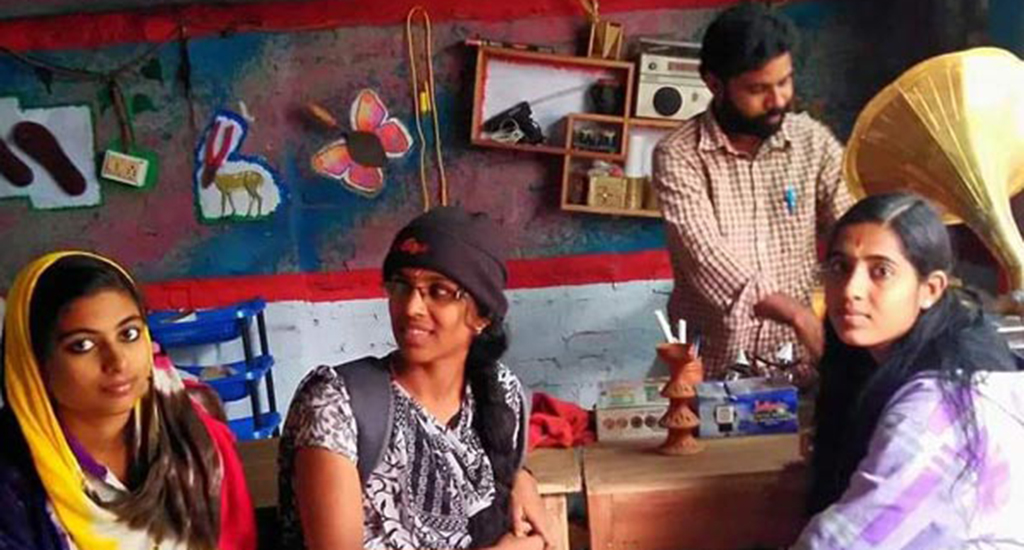
Nazar knew villagers were suspicious of his Muslim identity, never mind that in villages rarely do outsiders come and rent a room. People visited, sure, but they never stayed.
Added to that, he was from Kerala, where the villagers assumed all people were associated with Maoist activities.
So hostile were some people that his tea shop was even attacked once and some village elders lodged a police complaint.
When the police found no cause for concern, gradually some of the villagers began to talk to befriend Nazar, offering him a cup of tea, a handful of puffed rice, pieces of cucumber, cooked or soaked peas, rice-dal-fish – whatever they had.
He accepted them with a smile, unconcerned about its taste or if it was hygienically prepared, because he was a man on a mission – to improve the lives of Chakla villagers.
Nazar hails from Pezhakkappilly, a remote village in Kerala’s Ernakulam district. Small trades or jobs in Gulf countries were the norm in his village. So people didn’t understand when he enrolled for a master’s in social work.
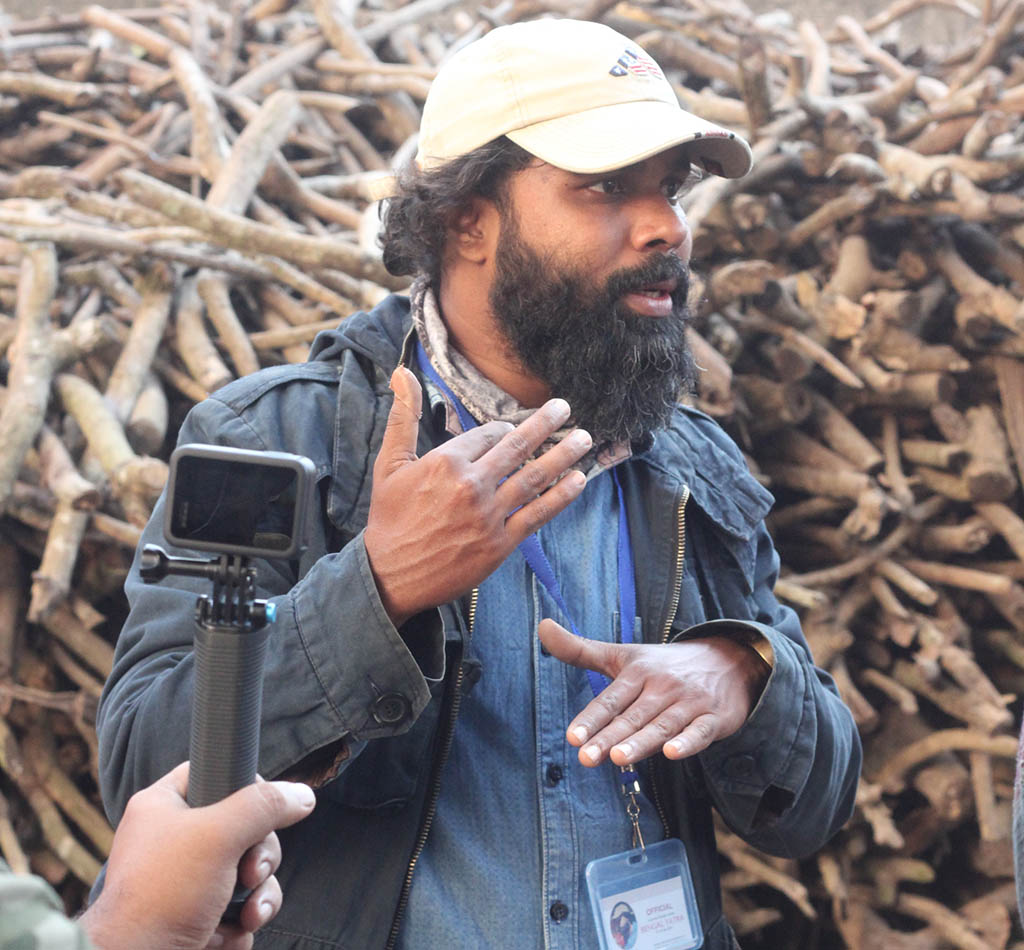
After finishing his course Nazar travelled across the country and worked with well-known social workers and grassroots organisations.
“My parents never stood against my dreams though they were not happy,” Nazar recalled.
A fellowship from the Foundation for Universal Responsibility founded by the Dalai Lama took him to Dharamsala in Himachal Pradesh in 2009. Nazar stayed back after the fellowship period, cleaning the mountain of litter and working among Tibetan political prisoners.
Eventually his social work took him to West Bengal where he started a rural development organisation in 2015 with some like minded friends.
Influenced by Buddhism during his stay in Dharamsala, he named it Zero Foundation, as zero represents fullness according to Buddhist belief.
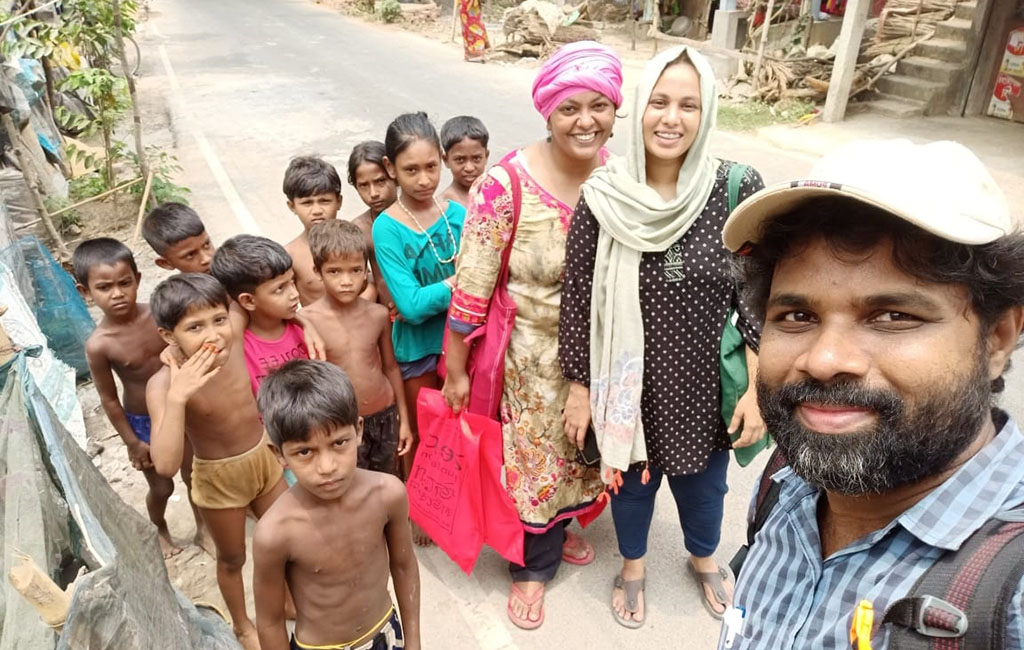
He decided to focus on food, health, education, micro finance and shelter. His friends gradually moved away, but he stayed on in Chakla village.
As the elders went to the agricultural fields or tended to cattle, the children wandered the streets and played. They were enrolled in the school mainly just to receive their midday meal.
Nazar captivated them with games and stories. He taught them the alphabet, how to write, sing and draw.
Having decided to work with the existing education system, he made sure that the children attended school regularly. He convinced dropouts to go back to school.
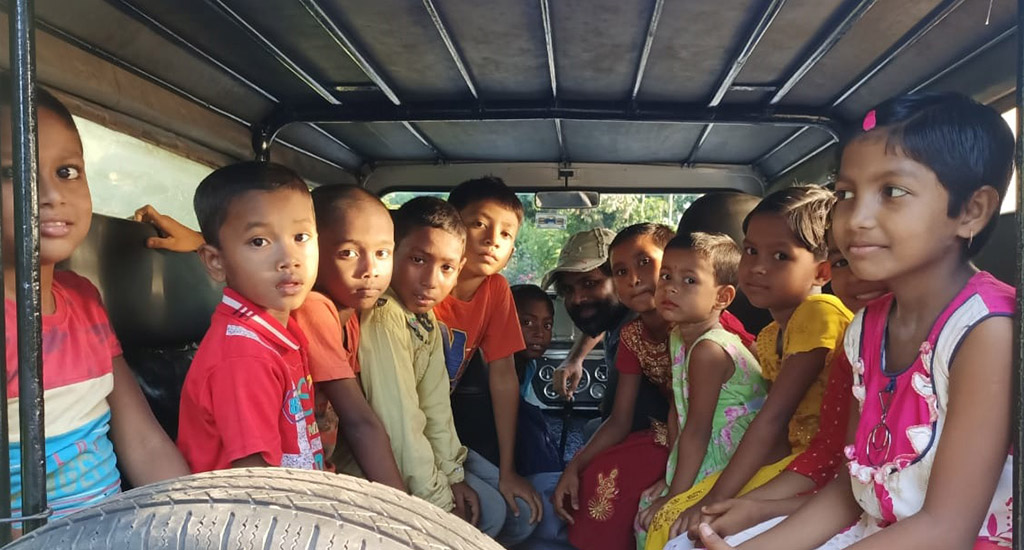
With the help of some sponsors and a nominal fee from the students, he set up a study centre for the village children. His friends help supply books and study materials. Using them, Nazar coached the children, making the two-hour tuition sessions a happy activity.
Now he has nine paid teachers, many of whom are older students who went or are going to college.
Zero Foundation helps students’ get admission for higher studies and also to choose their career.
He also provides basic amenities to rural government schools that lack infrastructure.
Though Chakla village is only around 50 km from the capital Kolkata, the nearest government hospital is 30 km away. The primary health centre does not work properly. Medical shops and about 150 quacks have been people’s recourse for treatment.
Village women used to use mud (lal mitty) sandwiched between cloth as sanitary pads and suffered from many vaginal problems as a consequence.
Shajuddheen – who had travelled from Kerala to be a part of Nazar’s Bengal Yatra to experience village life – recalls his phone call with Nazar after his return to Kerala.
“I asked him for his shirt size because I’d noticed his shirt faded and collars frayed,” said Shajuddheen. “But Nazar said his shirts were fine and instead asked for sanitary napkins for the village women.”
It is through such support that Zero Foundation has been distributing sanitary pads for the last four years, also conducting medical camps and awareness on women’s hygiene.
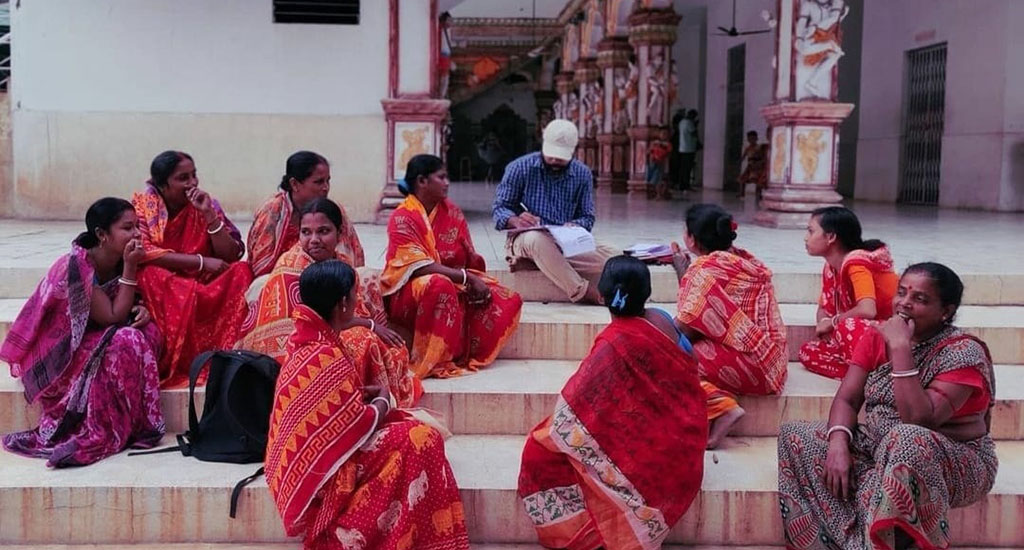
“Using napkins has reduced health issues, like urinary infections,” said Pingala, one of the women.
Nazar accepts donations but never applies for grants.
Be it blanket distribution in winter or flood relief or building houses for villagers whose houses were destroyed in natural disasters but did not get government compensation, or helping women become financially independent, Nazar does it all to improve the quality of life of the people of Chakla village.
Women like Pingala relate how they have educated their children or got their children married or bought household items or the money they earn every month – thanks to the SHG activities that Nazar helped them start. (Also read: The Chakla women’s successful nursery business)
Nazar believes India’s villages will progress – they just need a helping hand.
“Change should come. Whether we work for it or not, it will come. We can act as catalysts to speed up those changes,” summed up Nazar about his work in Chakla.
The featured image is of tea kettle brewing with steam coming out (Photo by Rahul Raman).
Chithra Ajith is a journalist based in Kozhikode, Kerala.